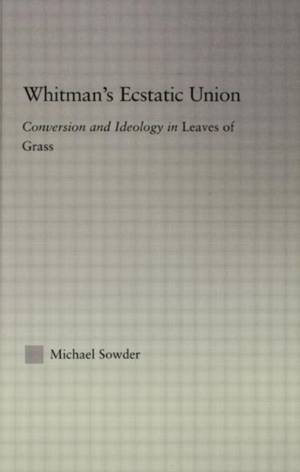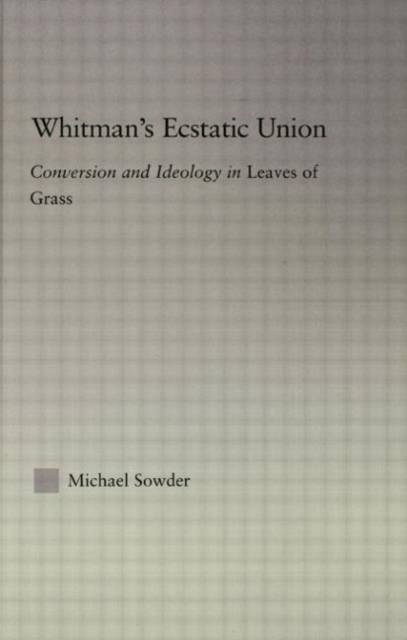
Je cadeautjes zeker op tijd in huis hebben voor de feestdagen? Kom langs in onze winkels en vind het perfecte geschenk!
- Afhalen na 1 uur in een winkel met voorraad
- Gratis thuislevering in België vanaf € 30
- Ruim aanbod met 7 miljoen producten
Je cadeautjes zeker op tijd in huis hebben voor de feestdagen? Kom langs in onze winkels en vind het perfecte geschenk!
- Afhalen na 1 uur in een winkel met voorraad
- Gratis thuislevering in België vanaf € 30
- Ruim aanbod met 7 miljoen producten
Zoeken
€ 320,95
+ 641 punten
Omschrijving
First Published in 2005. Whitman's Ecstatic Union rereads the first three editions of Leaves of Grass within the context of a nineteenth-century antebellum evangelical culture of conversion. Though Whitman intended to write a new American Bible and inaugurate a religion, contemporary scholarship has often ignored the religious element in his poetry. But just as evangelists sought the redemption of America through the reconstruction of individual subjects in conversion, Leaves of Grass sought to redeem the nation by inducing ecstatic, regenerating experiences in its readers. Whitman's Ecstatic Union explores the ecstasy of conversion as a liminal moment outside of language and culture, and-employing Althusser's model of ideological interpellation and anthropological models of religious ritual-shows how evangelicalism remade subjects by inducing ecstasy and instilling new narratives of identity. The book analyzes Whitman's historical relationship to preaching and conversion and reads the 1855 Song of Myself as a conversion narrative. A focus on the 1856 edition and the poem To You explores the sacred seductions at the heart of Whitman's poetry. Crossing Brooklyn Ferry and Whitman's vision of a world of perfect miracles are then connected to a conception of universal affection, uncannily paralleling Jonathan Edward's ideal of love to being in general. A conclusion looks toward the transformations of Whitman's vision in the 1860 edition.
Specificaties
Betrokkenen
- Auteur(s):
- Uitgeverij:
Inhoud
- Aantal bladzijden:
- 184
- Taal:
- Engels
- Reeks:
- Reeksnummer:
- nr. 38
Eigenschappen
- Productcode (EAN):
- 9780415972154
- Verschijningsdatum:
- 10/06/2005
- Uitvoering:
- Hardcover
- Formaat:
- Genaaid
- Afmetingen:
- 155 mm x 238 mm
- Gewicht:
- 385 g

Alleen bij Standaard Boekhandel
+ 641 punten op je klantenkaart van Standaard Boekhandel
Beoordelingen
We publiceren alleen reviews die voldoen aan de voorwaarden voor reviews. Bekijk onze voorwaarden voor reviews.









